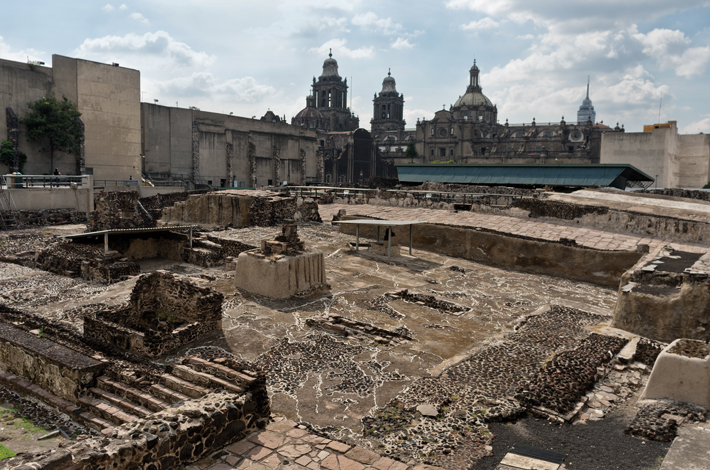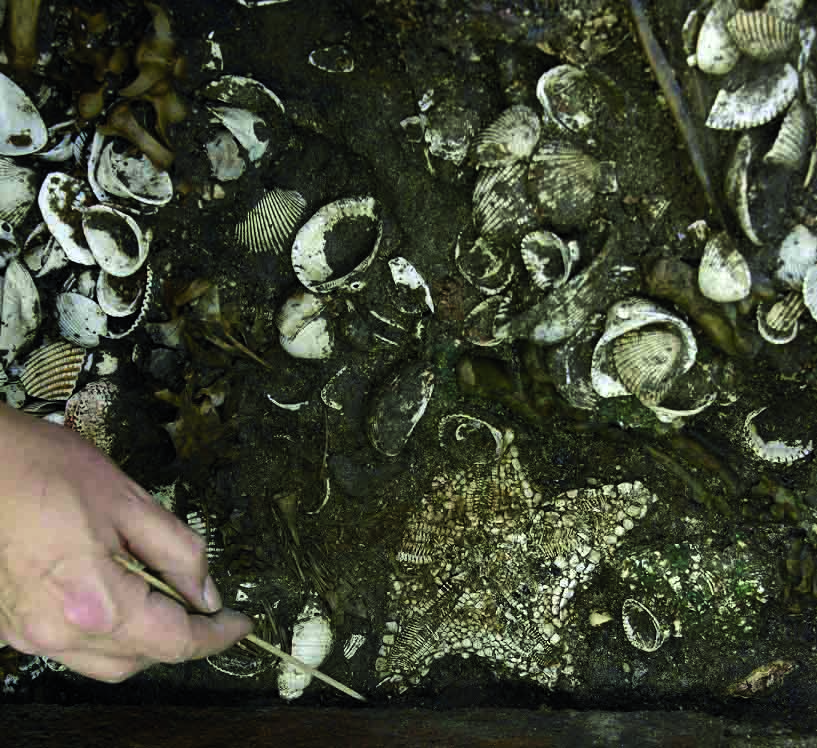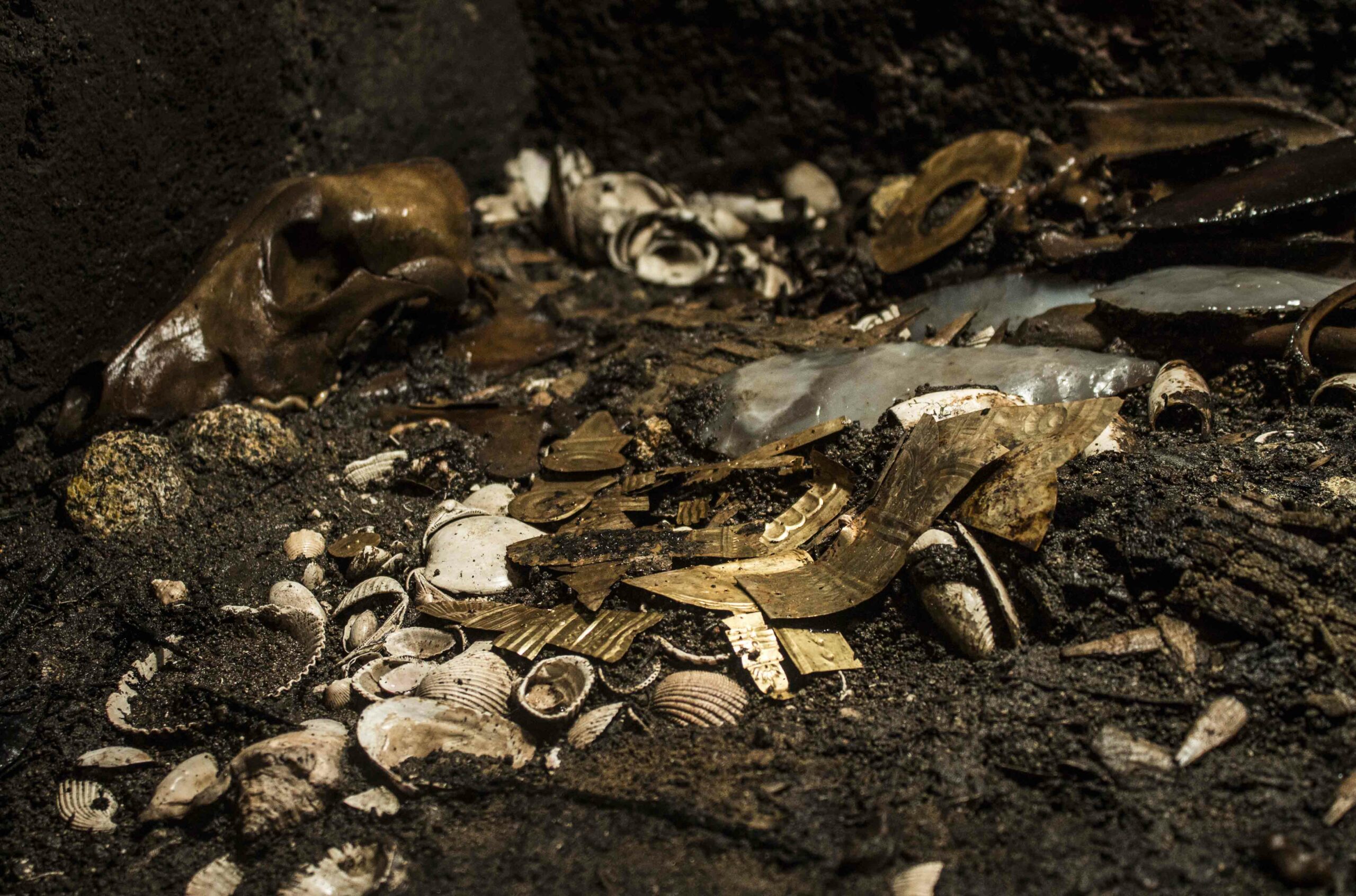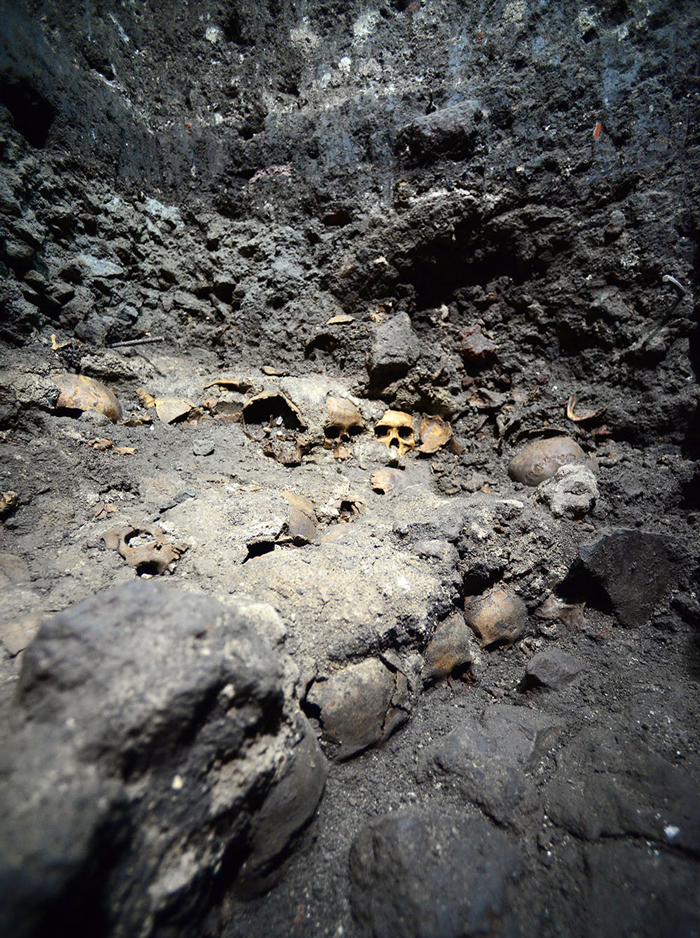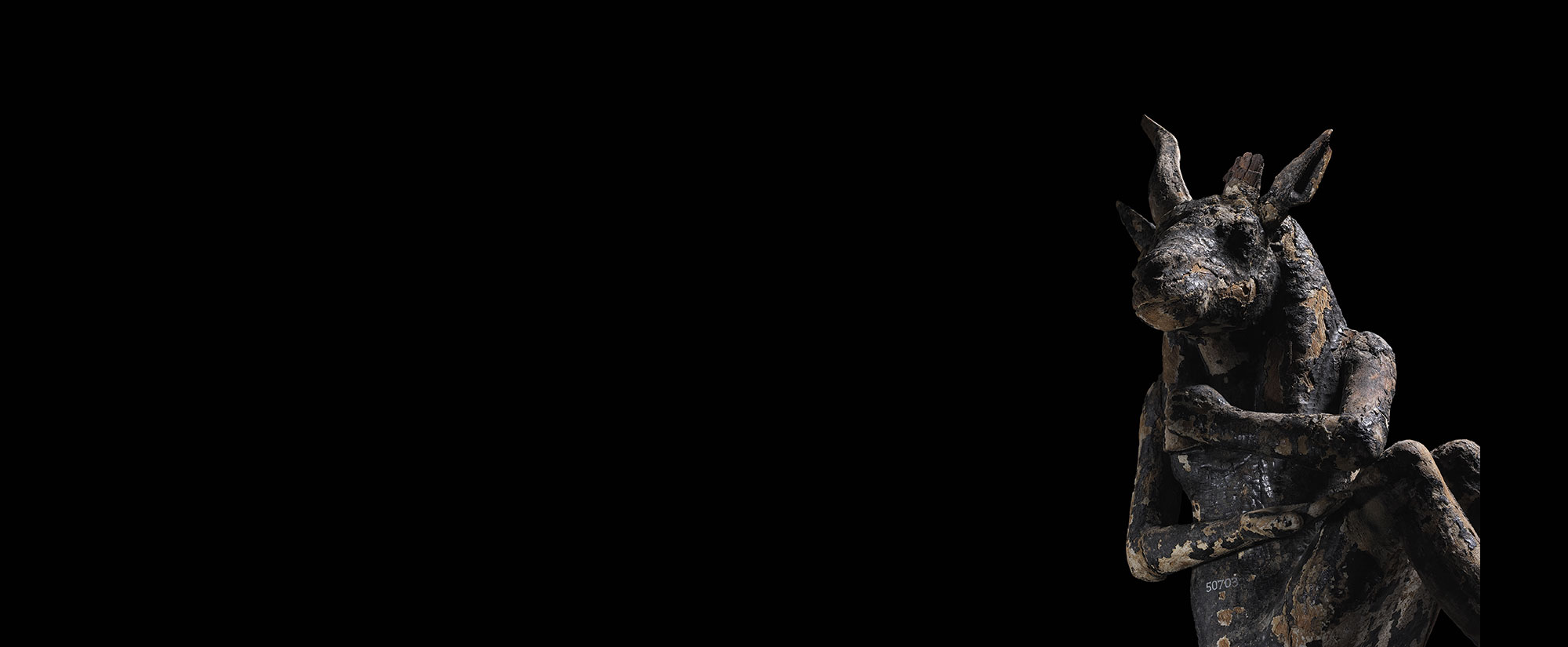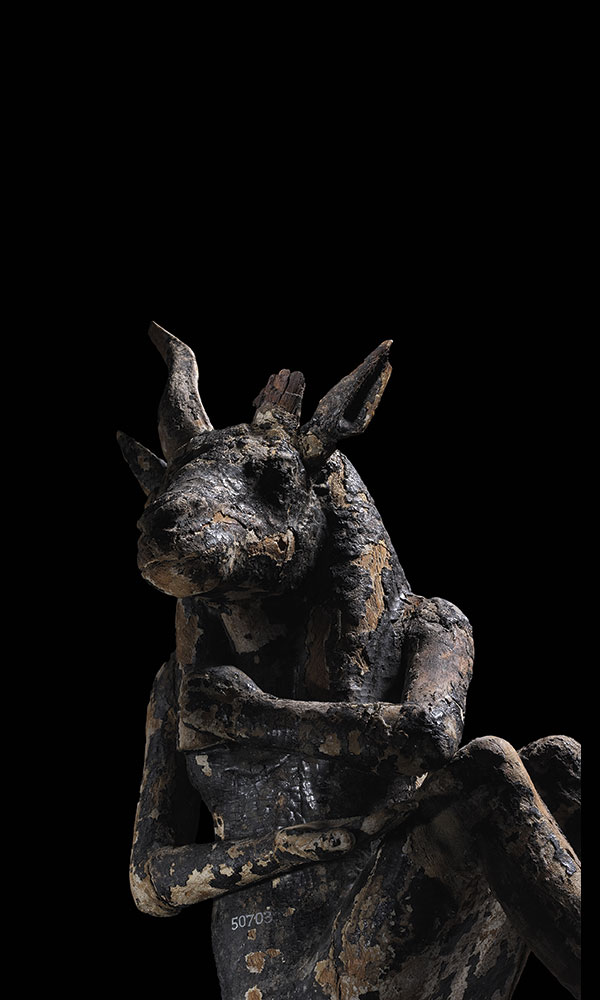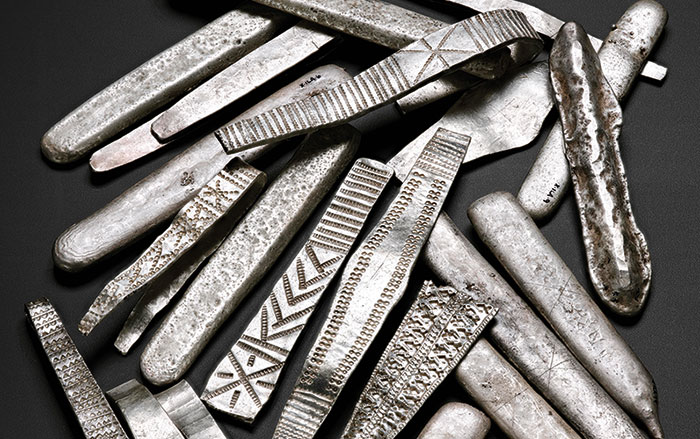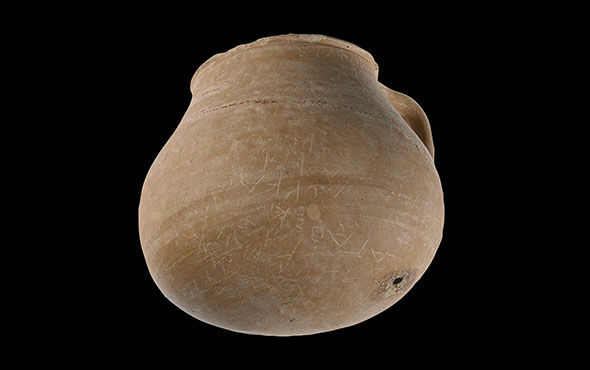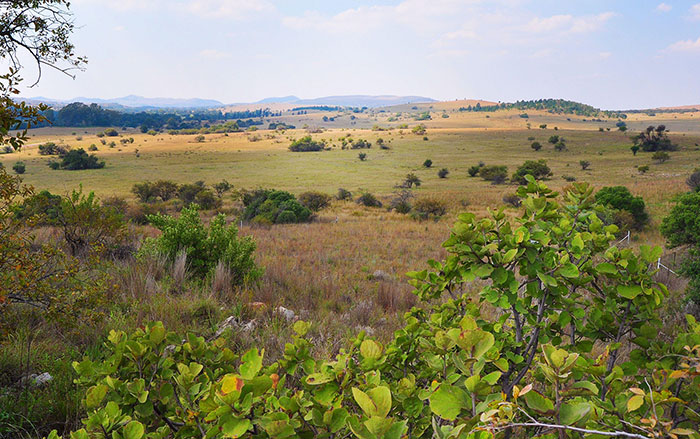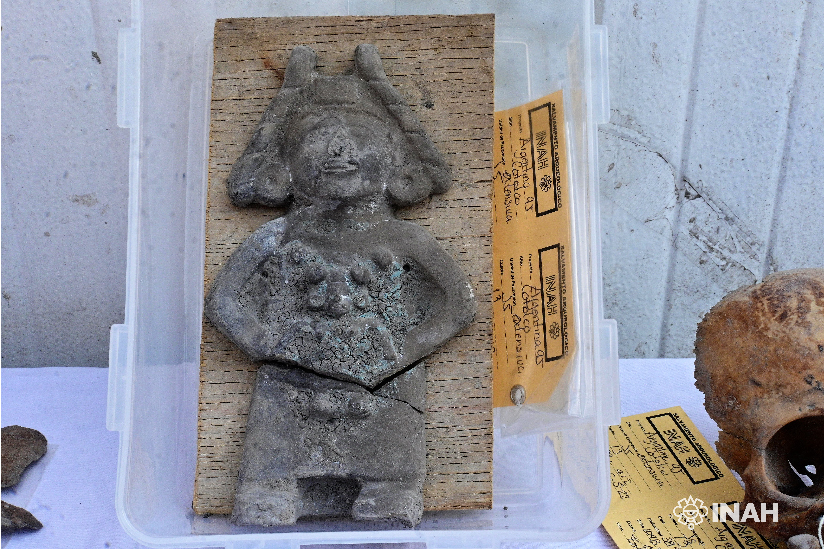
MEXICO CITY, MEXICO—The Associated Press reports that researchers from Mexico’s National Institute of Anthropology and History (INAH) have uncovered the remains of four children who were buried on the outskirts of the historic center of Mexico City. After the Spanish conquered the Aztec capital in 1521, they pushed the Indigneous Mexica population to the edges of the city. The children are thought to have been buried between 1521 and 1620 according to Aztec customs, even though these practices had been outlawed by the Spanish. For example, a newborn was buried in a bulbous-shaped pot with other pots placed around it. The bones of a bird were found in another pot with blue coloring, which has been associated with water. And a girl between the ages of six and eight at the time of death was buried with a large Aztec-style clay figurine depicting a female figure holding a child. Her remains showed possible signs of anemia, malnutrition, or infection, indicating that the Mexica population endured hard times after the conquest. For more on the world of the Aztecs, go to "Under Mexico City."


